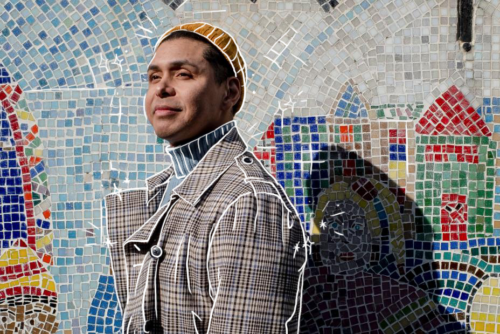6 Most Googled Questions About HIV/AIDS
If you have questions about HIV/AIDS, let us save you a few clicks. We’ve rounded up a list of some of the most commonly Googled HIV/AIDS questions and laid out the basic info you need to know.
What is HIV?
HIV is short for Human Immunodeficiency Virus. The virus attacks healthy T-cells in the immune system, making the body more vulnerable to other diseases and infections.
What is AIDS?
AIDS, or Acquired Immunodeficiency Syndrome, is the term used to describe the most serious stage of HIV infection. HIV+ people are considered to have progressed to AIDS once the T-cell count in their blood drops below a certain level. It’s important to note that AIDS is not a single illness–it’s a group of symptoms.
What is the difference between HIV and AIDS?
This part can be confusing, especially because the terms, “HIV,” “AIDS,” and “HIV/AIDS” are often used interchangeably, but stay with us for a second. As we explained above, HIV refers to a virus. HIV sometimes, but not always, progresses to AIDS. You can be HIV+ without having AIDS, but you can’t have AIDS without being HIV+.
When we talk about HIV/AIDS, we’re referring to the virus AND the resulting symptoms.
How do you get HIV?
HIV is transmitted from person to person through certain bodily fluids such as blood, semen, and breast milk. It usually spreads through sex, shared needles, or from mother to child during pregnancy, childbirth or breastfeeding.
While we’re on this topic, let’s clear up some commonly Googled misconceptions: HIV can NOT be transmitted through air, water, saliva, sweat, tears or urine— meaning you can’t get it from breathing the same air as an HIV+ person, sharing a toilet, kissing, or shaking hands.
How do you know if you have HIV?
Two words: Get. Tested.
Getting tested is the only way to know your HIV status for sure. In fact, nearly 1 in 5 people living with HIV don’t know they have it.
Today, there are several types of blood and saliva tests that can be used to detect whether someone has been infected with HIV. Regular testing can provide people with the information they need to keep themselves healthy.
Is there a cure for HIV/AIDS?
Though scientists, doctors, and researchers have made remarkable progress toward finding a cure for HIV/AIDS, the short answer is: no. You may have heard about the Berlin Patient, the London patient, or most recently, the São Paulo patient– individuals who have all been deemed “functionally cured” of the virus– but we don’t have a proven cure just yet.
Though HIV/AIDS isn’t curable at this moment in time, it IS treatable. Daily antiretroviral medication (ARVs) can reduce the amount of HIV in the body to the point where it is both undetectable and untransmittable. Not only do these incredible drugs allow those with HIV to lead full, healthy lives, but when taken regularly, ARVs can also prevent the virus from passing on to others.
After reading this, there is likely another question that comes to mind: What can you do to help?
This question truly couldn’t come at a better time. In the face of COVID-19, the AIDS fight is in jeopardy. As already-weakened health systems are overwhelmed, treatment and prevention services are disrupted, and resources are diverted, we could lose decades of progress in the fight to end AIDS.
We know that whether it’s COVID-19 or AIDS, there’s only one way to beat a pandemic: together. Join (RED) in our fight to strengthen global health systems and protect the incredible progress we’ve made in the AIDS fight.


